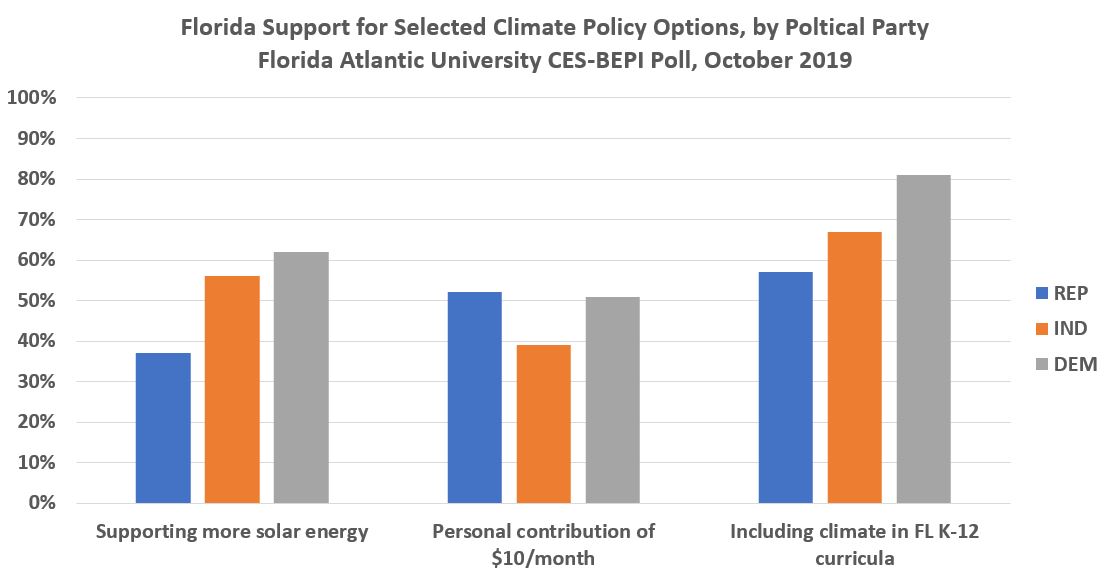A majority of Floridians are concerned about the well-being of future generations due to climate change and that Florida state government is not doing enough to address climate change impacts, according to the first-ever Florida Climate Resilience Survey conducted by the Florida Atlantic University Center for Environmental Studies (CES) in FAU’s College of Science, and the Business and Economics Polling Initiative (BEPI) in FAU’s College of Business. The statewide survey shows that 68% of Floridians either agree or strongly agree that climate change has them concerned about the well-being of future generations in Florida. Only 28% said that Florida’s government (state, county and municipal) is already doing enough to address the impacts of climate change.

The survey was conducted in both English and Spanish from October 1 to October 15. The sample consisted of 1,045 Floridians, 18 years of age and older, with a margin of error (credibility interval) of +/- 3.5 percent. The data was collected using an online panel provided by Dynata. Responses for the entire sample were weighted to adjust for gender, race, income, education and region according to latest American Community Survey data. It is important to remember that subsets carry with them higher margins of error, as the sample size is reduced. For more information, survey results, and full cross-tabulations, visit http://www.ces.fau.edu/ces-bepi/ or contact Professor Colin Polsky, Ph.D., at cpolsky@fau.edu.